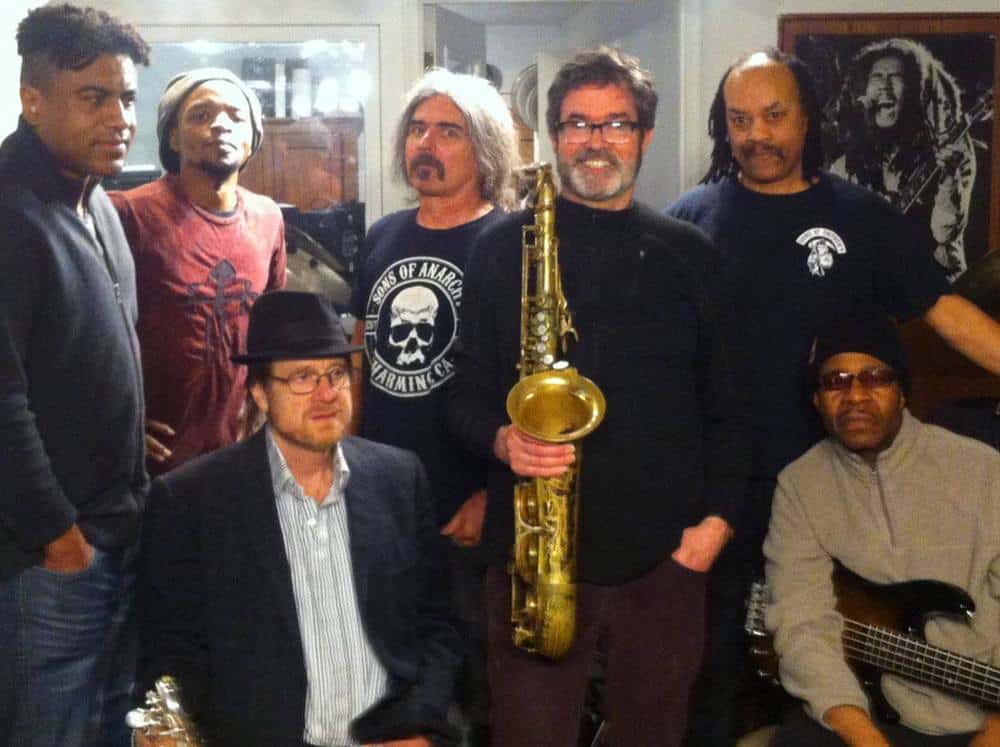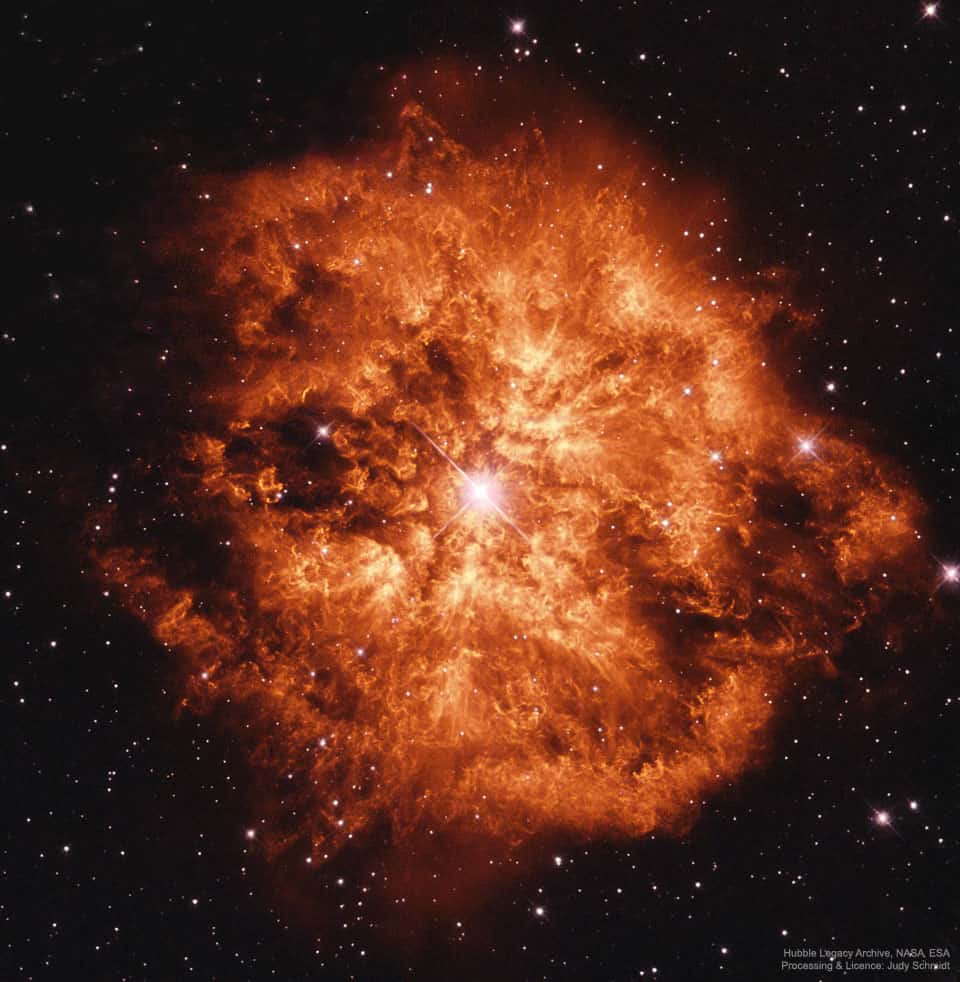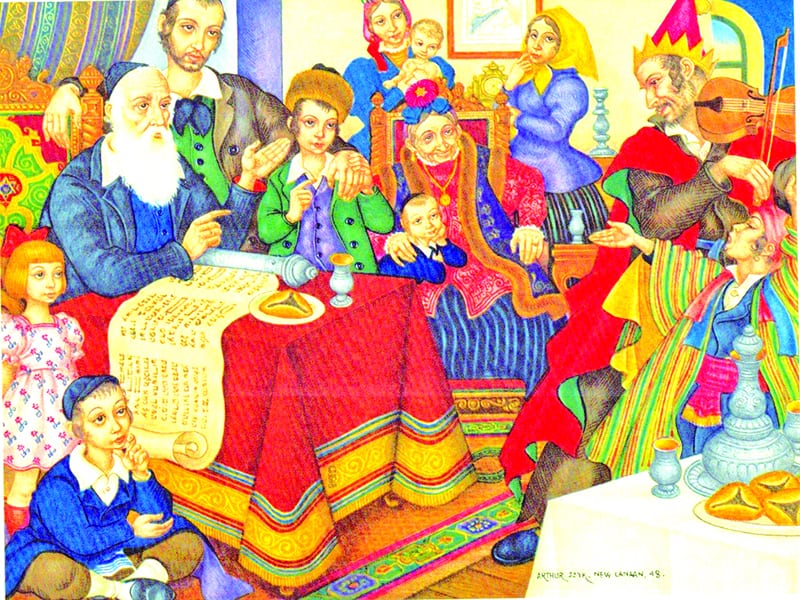Constellation of the unicorn (Monoceros). Pictured as a star forming region and cataloged as NGC 2264, the complex jumble of cosmic gas and dust is about 2,700 light-years distant and mixes reddish emission nebulae excited by energetic light from newborn stars with dark interstellar dust clouds. Where the otherwise obscuring dust clouds lie close to the hot, young stars they also reflect starlight, forming blue reflection nebulae. The featured wide-field image spans over three times the diameter of a full moon, covering over 100 light-years at the distance of NGC 2264. Its cast of cosmic characters includes the Fox Fur Nebula, whose convoluted pelt lies just to the lower right of the image center, bright variable star S Mon visible just above the Fox Fur, and the Cone Nebula just to the left. Given their distribution, the stars of NGC 2264 are also known as the Christmas Tree star cluster.

Ronnie Earl (born Ronald Horvath, March 10, 1953, Queens, New York, United States) is an American blues guitarist and music instructor.
Earl collected blues, jazz, rock and soul records while growing up. He studied American History at C.W. Post College on Long Island for a year and a half, then moved to Boston to pursue a Bachelor’s Degree in Special Education and Education at Boston University where he would graduate in 1975. He spent a short time teaching handicapped children. During his college years, he attended a Muddy Waters concert at the Jazz Workshop in Boston. After seeing Waters perform, Earl took a serious interest in the guitar, which he had first picked up in 1973. His first job was as a rhythm guitarist at The Speakeasy, a blues club in Cambridge, Massachusetts. In addition to playing in the Boston blues scene, Earl traveled twice by Greyhound Bus to Chicago, where he was introduced to the Chicago blues scene by Koko Taylor.
Later he traveled to New Orleans and Austin, Texas, where he spent time with Kim Wilson, Jimmie Vaughan and The Fabulous Thunderbirds. In 1979 he joined the band Roomful of Blues as lead guitarist.
see full post...John Donald “Don” Abney (March 10, 1923 – January 20, 2000) was an American jazz pianist.
Abney was born in Baltimore, Maryland. He studied piano and french horn at the Manhattan School of Music, and he played the latter in an Army band during military service.
After returning from the army he played in ensembles with Wilbur de Paris, Bill Harris, Kai Winding, Chuck Wayne, Sy Oliver, and Louis Bellson. He had a sustained career as a session musician, playing on recordings for Louis Armstrong, Benny Carter, Oscar Pettiford, Ella Fitzgerald, Carmen McRae, Sarah Vaughan, Eartha Kitt, and Pearl Bailey. He also played on a large number of recordings for more minor musicians and on R&B, pop, rock, and doo wop releases.
After moving to Hollywood, he worked as musical director for Universal Studios/MCA. He appeared as a pianist in the film Pete Kelly’s Blues behind Ella Fitzgerald. Additional credits include recording and arrangements for the film Lady Sings the Blues. He toured with Anita O’Day in the 1980s. Early in the 1990s he moved to Japan and toured there with considerable success, playing weekly at the Sanno Hotel in Tokyo. Upon his return to the United States in 2000, he died of complications from kidney dialysis, in Los Angeles, California. He was interred at Forest Lawn Cemetery, in Burbank, CA. He is survived by 5 children.
see full post...Norman Blake (born March 10, 1938) is a traditional American stringed instrument artist and songwriter.
Blake was born in Chattanooga, Tennessee, and grew up in Sulphur Springs, Alabama. He listened to old-time and country music on the radio by the Carter Family, the Skillet Lickers, Roy Acuff, and the Monroe Brothers (Charlie and Bill Monroe). He learned guitar at age 11 or 12, then mandolin, dobro, and fiddle in his teens. When he was 16, he dropped out of school to play music professionally.
In the 1950s, Blake joined the Dixieland Drifters and performed on radio broadcasts, then joined the Lonesome Travelers. When he was drafted in 1961, he served as an Army radio operator in the Panama Canal Zone. He started a popular band known as the Kobbe Mountaineers. A year later, while he was on leave, he recorded the album Twelve Shades of Bluegrass with the Lonesome Travelers.
see full post...Leon Bismark “Bix” Beiderbecke (March 10, 1903 – August 6, 1931) Davenport, Iowa was an American jazz cornetist, pianist, and composer.
Beiderbecke was one of the most influential jazz soloists of the 1920s, a cornet player noted for an inventive lyrical approach and purity of tone. His solos on seminal recordings such as “Singin’ the Blues” and “I’m Coming, Virginia” (both 1927) demonstrate a gift for extended improvisation that heralded the jazz ballad style, in which jazz solos are an integral part of the composition. Moreover, his use of extended chords and an ability to improvise freely along harmonic as well as melodic lines are echoed in post-WWII developments in jazz. “In a Mist” (1927) is the best known of Beiderbecke’s published piano compositions, and the only one that he recorded. His piano style reflects both jazz and classical (mainly impressionist) influences. All five of his piano compositions were published by Robbins Music during his lifetime.
A native of Davenport, Iowa, Beiderbecke taught himself to play the cornet largely by ear, leading him to adopt a non-standard fingering technique that informed his unique style. He first recorded with Midwestern jazz ensemble The Wolverines in 1924, after which he played briefly for the Detroit-based Jean Goldkette Orchestra before joining Frankie “Tram” Trumbauer for an extended engagement at the Arcadia Ballroom in St. Louis, also under the auspices of Goldkette’s organisation. Beiderbecke and Trumbauer joined Goldkette’s main band at the Graystone Ballroom in Detroit in 1926. The band toured widely and famously played a set opposite Fletcher Henderson at the Roseland Ballroom in New York City in October 1926. He made his greatest recordings in 1927. The Goldkette band folded in September 1927 and, after briefly joining bass saxophone player Adrian Rollini‘s band in New York, Trumbauer and Beiderbecke joined America’s most popular dance band: Paul Whiteman and his Orchestra.
Beiderbecke’s most influential recordings date from his time with Goldkette and Whiteman, although he also recorded under his own name and that of Trumbauer’s. The Whiteman period marked a precipitous decline in his health due to his increasing use of alcohol. Treatment for alcoholism in rehabilitation centers, with the support of Whiteman and the Beiderbecke family, failed to stop his decline. He left the Whiteman band in 1929 and in the summer of 1931 he died in his Sunnyside, Queens, New York apartment at the age of 28.
His death, in turn, gave rise to one of the original legends of jazz. In magazine articles, musicians’ memoirs, novels, and Hollywood films,Beiderbecke has been envisaged as a Romantic hero, the “Young Man with a Horn” (a novel, later made into a movie starring Kirk Douglas, Lauren Bacall, Doris Day, and Hoagy Carmichael). His life has often been portrayed as that of a jazz musician who had to compromise his art for the sake of commercialism. Beiderbecke remains the subject of scholarly controversy regarding his full name, the cause of his death and the importance of his contributions to jazz.
He composed or played on recordings that are jazz classics and standards such as “Davenport Blues“, “In a Mist“, “Copenhagen“, “Riverboat Shuffle“, “Singin’ the Blues“, and “Georgia On My Mind“.
see full post...This smattering of celestial sequins is a spiral galaxy named NGC 4455, located in the northern constellation of Coma Berenices (Berenice’s Hair). This might sound like an odd name for a constellation — and in fact it is somewhat unusual. It’s the only modern constellation to be named in honor of a real person from history: Queen Berenice II of Egypt.
The story of Queen Berenice II is an interesting one. A ruling queen of the ancient Greek city of Cyrene in modern-day Libya, and later a queen of Ptolemaic Egypt through her marriage to her cousin Ptolemy III Euergetes, Berenice became known for sacrificing locks of her hair as an offering to ensure her husband’s safe return from battle. Her husband did indeed return safely, and her hair, which she had left in a Zephyrium temple, had disappeared — it had apparently been stolen and placed among the stars.
Should it be located in NGC 4455, it traveled a long way. The galaxy is about 45 million light-years away. This image was taken by the NASA/ESA Hubble Space Telescope’s Advanced Camera for Surveys.

Ustad Zakir Hussain (born 9 March 1951) is an Indian tabla virtuoso, composer, percussionist, music producer, film actor and eldest son of legendary tabla player Ustad Allah Rakha.
He was awarded the Padma Shri in 1988, and the Padma Bhushan in 2002, by the Government of India presented by President Abdul Kalam.[2][1] He was also awarded the Sangeet Natak Akademi Award in 1990, given by the Sangeet Natak Academy, India’s National Academy of Music, Dance & Drama. In 1999, he was awarded the United States National Endowment for the Arts‘ National Heritage Fellowship, the highest award given to traditional artists & musicians.
Zakir Hussain was born on Friday, March 9, 1951 in a nursing home in Mahim (a suburb of Mumbai) at about 9:45 p.m Hussain was born to tablamaestro Alla Rakha. His mother’s name was Bavi Begum. It was said that Hussain was an ‘unlucky’ child since his father was extremely ill around the time of his birth. Although their family name is Qureshi, Zakir was given the surname Hussain. He attended St. Michael’s High School in Mahim, and briefly attended St. Xavier’s College, Mumbai.
Hussain was a child prodigy. His father taught him Pakhawaj from the age of 3 years. His father would wake him up at 3 a.m. and would teach him vocally by reciting different rhythms till 6 a.m. Zakir’s father Alla Rakha belonged to the tradition of tabla-playing known as the Punjab baaj style, the others being Delhi, Benares, Ajrara, Farrukhabad, and Lucknow.
see full post...Lloyd Price (born March 9, 1933) is an American R&B vocalist, known as “Mr. Personality”, after his 1959 million-selling hit, “Personality“. His first recording, “Lawdy Miss Clawdy“, was a hit for Specialty Records in 1952. He continued to release records, but none were as popular until several years later, when he refined the New Orleans beat and achieved a series of national hits.[2] He was inducted into the Rock and Roll Hall of Fame in 1998. He is also the earliest solo act who is still alive to earn a Billboard Hot 100 number-one single with “Stagger Lee“.
Price was born and grew up in Kenner, Louisiana, a suburb of New Orleans. He had formal training on trumpet and piano, sang in his church’s gospel choir, and was a member of a combo in high school. His mother, Beatrice Price, owned the Fish ‘n’ Fry Restaurant, and Price picked up lifelong interests in business and food from her.
Art Rupe, the owner of Specialty Records, based in Los Angeles, came to New Orleans in 1952 to record the distinctive style of rhythm and blues developing there, which had been highly successful for his competitor Imperial Records. Rupe heard Price’s song “Lawdy Miss Clawdy” and wanted to record it. Because Price did not have a band, Rupe hired Dave Bartholomew to create the arrangements and Bartholomew’s band (plus Fats Domino on piano) to back Price in the recording session. The song was a massive hit. His next release, “Oooh, Oooh, Oooh”, cut at the same session, was a much smaller hit. Price continued making recordings for Speciality, but none of them reached the charts at that time.
see full post...Randolph Denard Ornette Coleman (March 9 or 19, 1930 – June 11, 2015) was an American jazz saxophonist, violinist, trumpeter, and composer. In the 1960s, he was one of the founders of free jazz, a term he invented for his album Free Jazz: A Collective Improvisation. His “Broadway Blues” and “Lonely Woman” have become standards and are cited as important early works in free jazz. His album Sound Grammar received the 2007 Pulitzer Prize for Music.
Coleman was born on the 9th of March, 1930, in Fort Worth, Texas, where he was raised.
He attended I.M. Terrell High School, where he participated in band until he was dismissed for improvising during “The Washington Post” march. He began performing R&B and bebop on tenor saxophone and started The Jam Jivers with Prince Lasha and Charles Moffett.
Eager to leave town, he accepted a job in 1949 with a Silas Green from New Orleans traveling show and then with touring rhythm and blues shows. After a show in Baton Rouge, Louisiana, he was assaulted and his saxophone was destroyed.
He switched to alto saxophone, which remained his primary instrument, first playing it in New Orleans after the Baton Rouge incident. He then joined the band of Pee Wee Crayton and traveled with them to Los Angeles. He worked at various jobs, including as an elevator operator, while pursuing his music career.
In California he found like-minded musicians such as Ed Blackwell, Bobby Bradford, Don Cherry, Charlie Haden, Billy Higgins, and Charles Moffett. He recorded his debut album, Something Else!!!! (1958) with Cherry, Higgins, Walter Norris, and Don Payne. During the same year he belonged briefly to a quintet led by Paul Bley that performed at a club in New York City. By the time Tomorrow Is the Question! was recorded soon after with Cherry, Higgins, and Haden, the jazz world had been shaken up by Coleman’s alien music. Some jazz musicians called him a fraud, while conductor Leonard Bernstein praised him.
see full post...The New Orleans Mardi Gras 8 piece group BEAU KOO JACKS will be performing the first set at 9pm for the upcoming Mayday 2020 Parade fundraiser to acquire the $10,000 City of Minneapolis permit. Tonight at Mortimers Bar https://www.mortimersbar.com With Jamie Carter, Todd Matheson, Paul Strickland, Larry McCabe, Jesse Mueller, Van Nixon and mick Bamboula.

Urinetown the musical by Theater 55 at the Illusion Theater 2pm matinee. The scene is a city in a parallel universe in the mid 1900’s in which the majority of the citizens’ dreary low-class existence is compounded by a water shortage, which has lead to the institution of pay-per-use public bathrooms and the jailing of unsanitary offenders. Orchestra includes Neal McIntosh, Jamie Carter, Chad Green, Paul Fontara, Matty Harris and mick laBriola.

Wolf-Rayet stars are so tumultuous and hot that they are slowly disintegrating right before our telescopes. Glowing gas globs each typically over 30 times more massive than the Earth are being expelled by violent stellar winds. Wolf-Rayet star WR 124, visible near the featured image center spanning six light years across, is thus creating the surrounding nebula known as M1-67. Details of why this star has been slowly blowing itself apart over the past 20,000 years remains a topic of research. WR 124 lies 15,000 light-years away towards the constellation of the Arrow (Sagitta). The fate of any given Wolf-Rayet star likely depends on how massive it is, but many are thought to end their lives with spectacular explosions such as supernovas or gamma-ray bursts.

William Edward Childs (born March 8, 1957) is a jazz pianist, arranger and conductor from Los Angeles, California.
When he was sixteen, he attended the Community School of the Performing Arts sponsored by the University of Southern California. He studied music theory with Marienne Uszler and piano with John Weisenfluh. From 1975–’79 he attended the University of Southern California and received a degree in composition under the tutelage of Robert Linn.
His sister is the playwright Kirsten Childs.
Childs was playing professionally as a teenager, and he made his recording debut in 1977 with the J. J. Johnson Quintet during a tour of Japan that is documented as the Yokohama Concert. He gained significant attention during his six-years (1978–84) playing with trumpeter Freddie Hubbard‘s group. While influenced early on in his playing by Herbie Hancock, Keith Emerson, and Chick Corea and in his composing by Paul Hindemith, Maurice Ravel, and Igor Stravinsky, Childs nevertheless had an original conception of his own from near the start, developing his own voice as both a pianist and a composer in jazz and classical music genres.
see full post...Gábor István Szabó (March 8, 1936 – February 26, 1982) was a Hungarian American guitarist whose style incorporated jazz, pop, rock, and Hungarian music.
Gábor Szabó was born in Budapest, Hungary. He began playing guitar at the age of 14. When he was 20, in the aftermath of the Hungarian revolution of 1956, he moved to California and he later attended Berklee College of Music in Boston between 1958 and 1960.
In 1961, Szabó became a member of quintet that was led by Chico Hamilton and included Charles Lloyd, playing what has been described as chamber jazz, with “a moderate avant-gardism”. Szabó was influenced by the rock music of the 1960s, particularly the use of feedback. In 1965 he was in a jazz pop group led by Gary McFarland, then worked again with Lloyd in an energetic quartet with Ron Carter and Tony Williams. The song “Gypsy Queen” from Szabó’s debut solo album Spellbinder became a hit for rock guitarist Carlos Santana. During the late 1960s, Szabó worked in a group with guitarist Jimmy Stewart. He started the label Skye Records with McFarland and Cal Tjader.
see full post...
